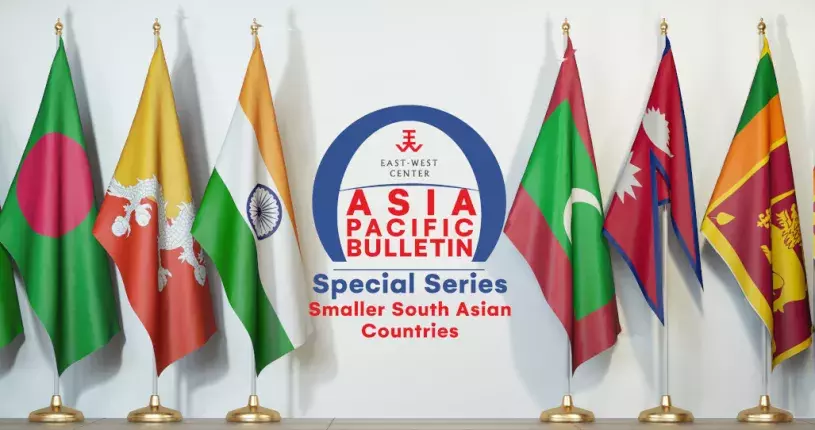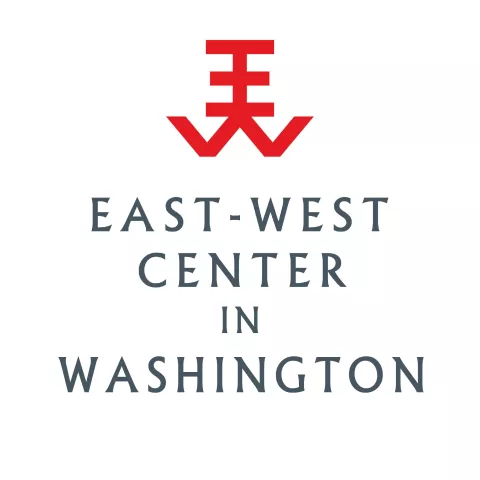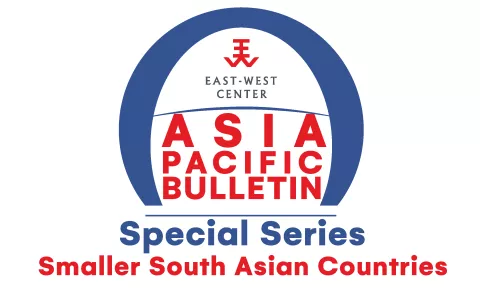Error message

OFFICE/DEPARTMENT

| For decades, India and Pakistan dominated scholarship and policy toward South Asia. The remaining five countries—Bangladesh, Nepal, Sri Lanka, Bhutan, and the Maldives—have been neglected and warrant greater attention at a time when the region is evolving and questions are being raised about the strategic preferences of these smaller South Asian countries. This special Asia Pacific Bulletin series provides a platform for leading voices from these states to directly convey perspectives to US policymakers. Many thanks to Nilanthi Samaranayake, East-West Center Adjunct Fellow, for serving as the Guest Editor for this special series. Currently, Ms. Samaranayake is writing a book on the Smaller South Asian countries. |

Smaller South Asian Countries and the US Indo-Pacific Strategy at One Year
Nilanthi Samaranayake, Adjunct Fellow at the East-West Center and a Visiting Expert at the US Institute of Peace, explains that while smaller South Asian Countries are not expressly mentioned in the US Indo-Pacific Strategy, US policy already recognizes clear interests in these states.
Bangladesh: US Indo-Pacific Strategy at One Year
Porimol Palma, Diplomatic Correspondent with The Daily Star out of Bangladesh, explains that Bangladesh supports the US Indo-Pacific Strategy as a development arrangment but not as a defense or military pact.
Nepal: US Indo-Pacific Strategy at One Year
Avasna Pandey, Lecturer in the Department of International Relations and Diplomacy at Tribhuwan University, explains that "Nepal's engagement with great powers such as the United States and China has been motivated by its pursuit of national interest and development."
Sri Lanka: US Indo-Pacific Strategy at One Year
Ranga Jayasuriya, Sri Lankan journalist for the Daily Mirror and Fellow of the Daniel K. Inouye Asia-Pacific Center for Security Studies in Hawaii, explains that "Under the West-leaning new president, the state is poised to be a more cooperative partner in America's Indo-Pacific strategy, though not necessarily in an explicit understanding of checking China's rise."
Bhutan: US Indo-Pacific Strategy at One Year
Gopilal Acharya, Senior Freelance Journalist from Bhutan and creative writing student at Curtin University in Australia, explains that "The idea of the Indo-Pacific appears remote from Thimphu" as "the US-led Strategy clearly brands itself a tool of political resurgence" and "Bhutan does not have official diplomatic relations with the United States."
Maldives: US Indo-Pacific Strategy at One Year
Dr. Rasheeda M. Didi, Senior Fellow at South Asia Foresight Network (SAFN), explains that "Because of the attention given to China between 2013 and 2018, the Maldives has become a geostrategic battleground… Its strategic significance increased for the members of the Quad alliance… as they committed themselves to making the Indo-Pacific region stable, free, and open."

| For decades, India and Pakistan dominated scholarship and policy toward South Asia. The remaining five countries—Bangladesh, Nepal, Sri Lanka, Bhutan, and the Maldives—have been neglected and warrant greater attention at a time when the region is evolving and questions are being raised about the strategic preferences of these smaller South Asian countries. This special Asia Pacific Bulletin series provides a platform for leading voices from these states to directly convey perspectives to US policymakers. Many thanks to Nilanthi Samaranayake, East-West Center Adjunct Fellow, for serving as the Guest Editor for this special series. Currently, Ms. Samaranayake is writing a book on the Smaller South Asian countries. |

Smaller South Asian Countries and the US Indo-Pacific Strategy at One Year
Nilanthi Samaranayake, Adjunct Fellow at the East-West Center and a Visiting Expert at the US Institute of Peace, explains that while smaller South Asian Countries are not expressly mentioned in the US Indo-Pacific Strategy, US policy already recognizes clear interests in these states.
Bangladesh: US Indo-Pacific Strategy at One Year
Porimol Palma, Diplomatic Correspondent with The Daily Star out of Bangladesh, explains that Bangladesh supports the US Indo-Pacific Strategy as a development arrangment but not as a defense or military pact.
Nepal: US Indo-Pacific Strategy at One Year
Avasna Pandey, Lecturer in the Department of International Relations and Diplomacy at Tribhuwan University, explains that "Nepal's engagement with great powers such as the United States and China has been motivated by its pursuit of national interest and development."
Sri Lanka: US Indo-Pacific Strategy at One Year
Ranga Jayasuriya, Sri Lankan journalist for the Daily Mirror and Fellow of the Daniel K. Inouye Asia-Pacific Center for Security Studies in Hawaii, explains that "Under the West-leaning new president, the state is poised to be a more cooperative partner in America's Indo-Pacific strategy, though not necessarily in an explicit understanding of checking China's rise."
Bhutan: US Indo-Pacific Strategy at One Year
Gopilal Acharya, Senior Freelance Journalist from Bhutan and creative writing student at Curtin University in Australia, explains that "The idea of the Indo-Pacific appears remote from Thimphu" as "the US-led Strategy clearly brands itself a tool of political resurgence" and "Bhutan does not have official diplomatic relations with the United States."
Maldives: US Indo-Pacific Strategy at One Year
Dr. Rasheeda M. Didi, Senior Fellow at South Asia Foresight Network (SAFN), explains that "Because of the attention given to China between 2013 and 2018, the Maldives has become a geostrategic battleground… Its strategic significance increased for the members of the Quad alliance… as they committed themselves to making the Indo-Pacific region stable, free, and open."







